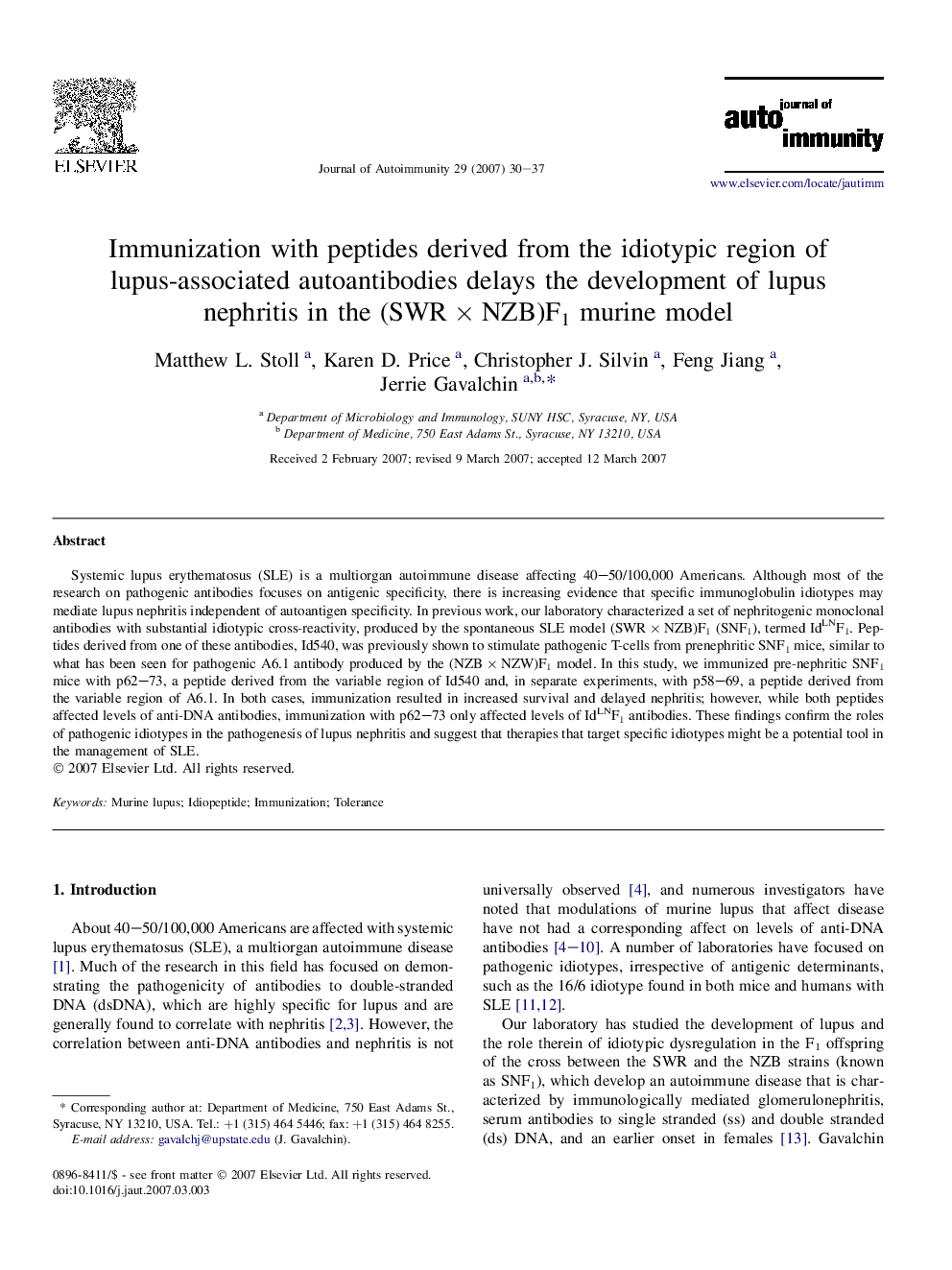| Article ID | Journal | Published Year | Pages | File Type |
|---|---|---|---|---|
| 3368412 | Journal of Autoimmunity | 2007 | 8 Pages |
Systemic lupus erythematosus (SLE) is a multiorgan autoimmune disease affecting 40–50/100,000 Americans. Although most of the research on pathogenic antibodies focuses on antigenic specificity, there is increasing evidence that specific immunoglobulin idiotypes may mediate lupus nephritis independent of autoantigen specificity. In previous work, our laboratory characterized a set of nephritogenic monoclonal antibodies with substantial idiotypic cross-reactivity, produced by the spontaneous SLE model (SWR × NZB)F1 (SNF1), termed IdLNF1. Peptides derived from one of these antibodies, Id540, was previously shown to stimulate pathogenic T-cells from prenephritic SNF1 mice, similar to what has been seen for pathogenic A6.1 antibody produced by the (NZB × NZW)F1 model. In this study, we immunized pre-nephritic SNF1 mice with p62–73, a peptide derived from the variable region of Id540 and, in separate experiments, with p58–69, a peptide derived from the variable region of A6.1. In both cases, immunization resulted in increased survival and delayed nephritis; however, while both peptides affected levels of anti-DNA antibodies, immunization with p62–73 only affected levels of IdLNF1 antibodies. These findings confirm the roles of pathogenic idiotypes in the pathogenesis of lupus nephritis and suggest that therapies that target specific idiotypes might be a potential tool in the management of SLE.
